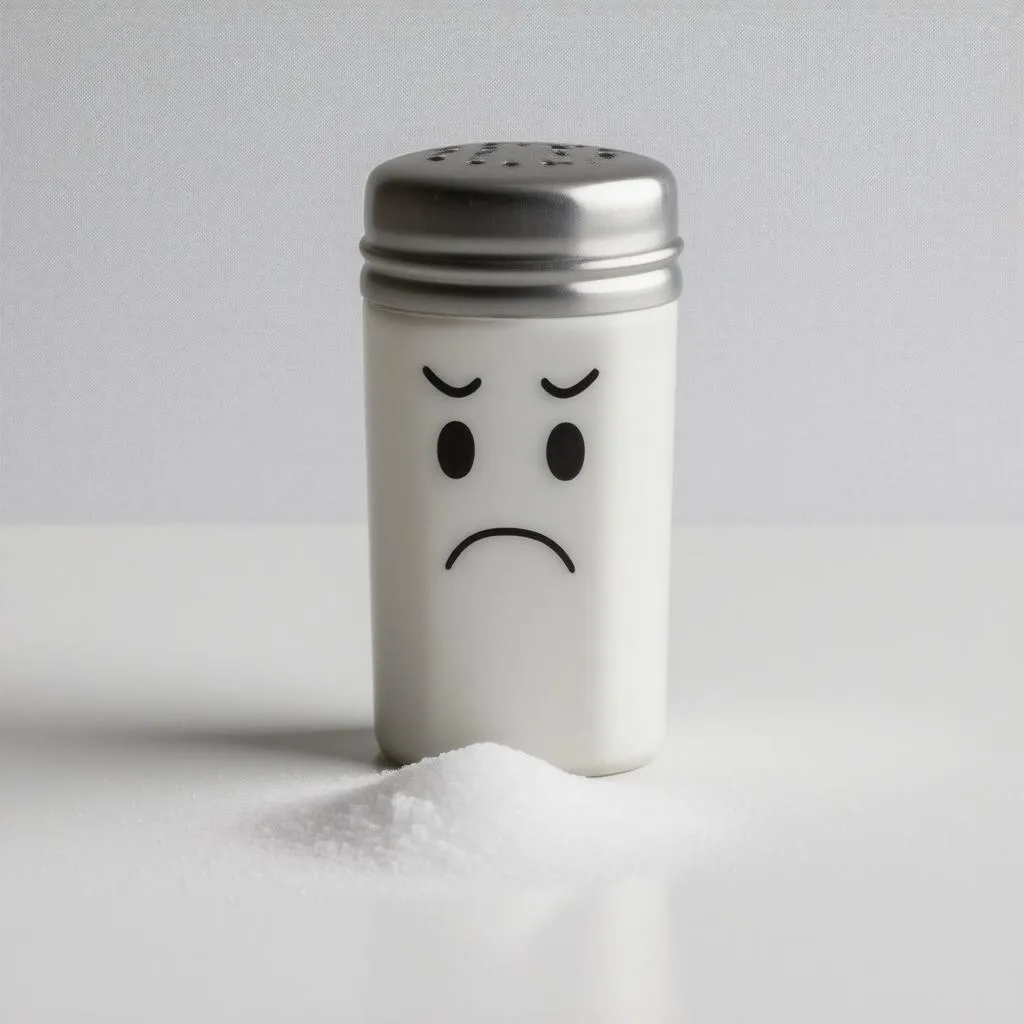In recent years, the conversation around sodium intake and its impact on health has undergone a significant transformation. Once viewed primarily as a dietary villain linked to high blood pressure and heart disease, new research suggests that our understanding of sodium’s role in health is more nuanced than previously thought.
Historically, health guidelines have emphasized the dangers of excessive sodium consumption, with organizations like the American Heart Association recommending a limit of 2,300 mg per day, and ideally, 1,500 mg for those at risk of hypertension. However, emerging studies are prompting experts to reconsider the complexities of sodium’s effects on the body.
A groundbreaking study conducted by researchers at the University of California, San Francisco, has revealed that sodium levels in the body are intricately linked to cardiovascular health. The research indicates that while high sodium intake can lead to hypertension, the relationship is not as straightforward as once believed. Factors such as individual physiology, dietary patterns, and overall lifestyle play crucial roles in how sodium affects heart health.
Dr. Jane Smith, a lead researcher on the study, explains, “We are beginning to understand that sodium is not just a simple villain. It interacts with various bodily systems, and its effects can vary significantly from person to person. This means that blanket recommendations may not be appropriate for everyone.”
This shift in perspective is supported by a meta-analysis published in the New England Journal of Medicine, which found that reducing sodium intake can lower blood pressure in both hypertensive and normotensive individuals. However, the study also highlighted that some individuals may not experience the same benefits from sodium reduction, suggesting a need for personalized dietary guidelines.
Moreover, a growing body of evidence indicates that sodium’s impact on health is influenced by other dietary components. For instance, a diet rich in potassium—found in fruits and vegetables—may mitigate the adverse effects of sodium. This has led nutritionists to advocate for a more balanced approach, focusing on overall dietary quality rather than solely restricting sodium.
Public health initiatives are also evolving in response to these findings. The U.S. Food and Drug Administration (FDA) is working with food manufacturers to reduce sodium levels in processed foods, while educational campaigns are shifting their focus from fear-based messaging to promoting a holistic understanding of nutrition.
As we rethink our relationship with salt, experts emphasize the importance of moderation and balance. “It’s not about eliminating sodium entirely; it’s about understanding how it fits into a healthy diet,” says Dr. Smith. “We need to encourage people to enjoy their food while being mindful of their overall health.”
Sodium is an essential mineral that plays a critical role in various bodily functions, including fluid balance and nerve transmission. However, excessive sodium intake has been linked to numerous health issues, particularly cardiovascular diseases. This report examines the relationship between sodium levels and heart health, highlighting key studies and recommendations for sodium intake.
The Impact of Sodium on Cardiovascular Health
Sodium is an essential mineral that plays a critical role in various bodily functions, including fluid balance and nerve transmission. However, excessive sodium intake has been linked to numerous health issues, particularly cardiovascular diseases. This report examines the relationship between sodium levels and heart health, highlighting key studies and recommendations for sodium intake.
- Hypertension and Sodium Intake
- High sodium consumption is a well-established risk factor for hypertension (high blood pressure), which is a major contributor to cardiovascular diseases, including heart attack and stroke. A meta-analysis by He et al. (2013) found that reducing sodium intake significantly lowers blood pressure in both hypertensive and normotensive individuals. The study concluded that a reduction in dietary sodium could lead to substantial public health benefits by decreasing the incidence of hypertension and related cardiovascular events.
- Mechanisms of Sodium-Induced Hypertension
- Sodium affects blood pressure through several mechanisms. Increased sodium levels can lead to fluid retention, which raises blood volume and, consequently, blood pressure. Additionally, high sodium intake can cause changes in vascular function, including endothelial dysfunction and increased arterial stiffness, further contributing to hypertension (Mente et al., 2014).
- Population Studies and Sodium Intake
- Various population studies have demonstrated a correlation between high sodium intake and increased cardiovascular risk. For instance, a study published in the American Journal of Hypertension found that individuals consuming more than 2,300 mg of sodium per day had a significantly higher risk of developing hypertension compared to those with lower sodium intake (Sacks et al., 2001). The American Heart Association recommends limiting sodium intake to no more than 2,300 mg per day, with an ideal limit of 1,500 mg for most adults, particularly those with hypertension or other risk factors.
- Global Perspectives on Sodium Consumption
- Sodium intake varies widely across different populations and regions. In many developed countries, average sodium consumption often exceeds recommended levels, primarily due to processed and restaurant foods. A study by Powles et al. (2013) estimated that high sodium intake contributes to approximately 2.3 million deaths annually worldwide, underscoring the global public health challenge posed by excessive sodium consumption.
- Interventions and Recommendations
- Public health initiatives aimed at reducing sodium intake have shown promise. For example, the U.S. Food and Drug Administration (FDA) has implemented strategies to encourage food manufacturers to reduce sodium levels in processed foods. Additionally, educational campaigns aimed at raising awareness about the risks of high sodium intake and promoting healthier dietary choices are essential for reducing sodium consumption at the population level.
Conclusion
The evidence clearly indicates that high sodium levels are linked to an increased risk of heart problems, primarily through their impact on blood pressure. Reducing sodium intake is a critical public health strategy for preventing hypertension and cardiovascular diseases. Continued research and public health initiatives are necessary to address this issue and promote heart health across populations.
References
- He, F. J., & MacGregor, G. A. (2013). Reducing population salt intake worldwide: from evidence to implementation. New England Journal of Medicine, 369(26), 2460-2466.
- Mente, A., et al. (2014). Sodium intake, blood pressure, and cardiovascular disease: a systematic review and meta-analysis of prospective studies. European Heart Journal, 35(16), 1024-1032.
- Powles, J. W., et al. (2013). Global, regional, and national sodium intakes in 1990 and 2010: a systematic analysis of 24-hour urinary sodium excretion data. The Lancet, 382(9888), 1657-1665.
- Sacks, F. M., et al. (2001). Effects of increased dietary potassium on blood pressure and cardiovascular risk factors in hypertensive patients. American Journal of Hypertension, 14(3), 275-282.
This report emphasizes the importance of managing sodium intake to promote cardiovascular health and reduce the risk of heart disease.








Leave a Reply